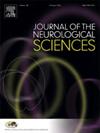Traumatic brain injury, environmental exposures, and subjective cognition in post-9/11 veterans enrolled in the VA Million Veteran Program
IF 3.2
3区 医学
Q1 CLINICAL NEUROLOGY
引用次数: 0
Abstract
Using data from the VA Million Veteran Program (MVP), this study aimed to (1) examine rates of environmental exposures as a function of traumatic brain injury (TBI) history in post-9/11 veterans and (2) examine the independent and interactive effects of TBI and exposures on subjective cognition. Participants included 6707 MVP-enrolled veterans (78 % male; age: M = 44.66, SD = 10.91) who were deployed in support of the Iraq/Afghanistan-era conflicts, completed MVP surveys, and participated in the VA TBI Screening and Evaluation Program (TBI-SEP). Veterans were classified into three groups based on the results of the TBI-SEP: (1) negative TBI screen; (2) positive TBI screen but no TBI diagnosis; or (3) positive TBI screen and confirmed TBI diagnosis. Environmental exposures were extracted from MVP surveys and included solvents/fuels; pesticides; lead; other metals; combustion products; open-air burn pits; and chemical/biological warfare (CBW) agents. The Medical Outcomes Study Cognitive Functioning-Revised (MOS-Cog-R) scale was used to assess subjective cognition. Chi-square tests showed that exposure rates were highest among veterans screening positive for TBI. The most commonly reported exposure types were combustion products, burn pits, and solvents/fuels. Adjusted linear regressions showed that both TBI and environmental exposures independently contributed to worse subjective cognition, but there were no synergistic effects between TBI and exposures on cognition, except for CBW agents. Our findings emphasize the importance of considering environmental exposures as independent risk factors for subjective cognitive difficulties in post-9/11 veterans and support the use of toxic exposure screenings to connect veterans with appropriate resources and clinical care.
创伤性脑损伤、环境暴露和主观认知在9/11后退伍军人退伍军人百万计划中登记
利用VA百万退伍军人计划(MVP)的数据,本研究旨在(1)研究环境暴露率与9/11后退伍军人创伤性脑损伤(TBI)历史的关系;(2)研究创伤性脑损伤和暴露对主观认知的独立和互动影响。参与者包括6707名入选mvp的退伍军人(78%为男性;年龄:M = 44.66, SD = 10.91),完成了MVP调查,参加了VA TBI筛查和评估计划(TBI- sep)。根据TBI- sep结果将退伍军人分为三组:(1)TBI筛查阴性;(2) TBI筛查阳性但未确诊;(3) TBI筛查阳性,确诊为TBI。从MVP调查中提取的环境暴露包括溶剂/燃料;农药;铅;其他金属;燃烧产品;露天燃烧坑;化学/生物战剂(CBW)。采用医学结局研究认知功能修正(MOS-Cog-R)量表评估主观认知。卡方检验显示,在TBI筛查呈阳性的退伍军人中,暴露率最高。最常见的暴露类型是燃烧产物、燃烧坑和溶剂/燃料。调整后的线性回归显示,创伤性脑损伤和环境暴露都是导致主观认知恶化的独立因素,但除了CBW因素外,创伤性脑损伤和环境暴露对认知没有协同作用。我们的研究结果强调了将环境暴露作为9/11后退伍军人主观认知困难的独立风险因素的重要性,并支持使用有毒暴露筛查将退伍军人与适当的资源和临床护理联系起来。
本文章由计算机程序翻译,如有差异,请以英文原文为准。
求助全文
约1分钟内获得全文
求助全文
来源期刊

Journal of the Neurological Sciences
医学-临床神经学
CiteScore
7.60
自引率
2.30%
发文量
313
审稿时长
22 days
期刊介绍:
The Journal of the Neurological Sciences provides a medium for the prompt publication of original articles in neurology and neuroscience from around the world. JNS places special emphasis on articles that: 1) provide guidance to clinicians around the world (Best Practices, Global Neurology); 2) report cutting-edge science related to neurology (Basic and Translational Sciences); 3) educate readers about relevant and practical clinical outcomes in neurology (Outcomes Research); and 4) summarize or editorialize the current state of the literature (Reviews, Commentaries, and Editorials).
JNS accepts most types of manuscripts for consideration including original research papers, short communications, reviews, book reviews, letters to the Editor, opinions and editorials. Topics considered will be from neurology-related fields that are of interest to practicing physicians around the world. Examples include neuromuscular diseases, demyelination, atrophies, dementia, neoplasms, infections, epilepsies, disturbances of consciousness, stroke and cerebral circulation, growth and development, plasticity and intermediary metabolism.
 求助内容:
求助内容: 应助结果提醒方式:
应助结果提醒方式:


